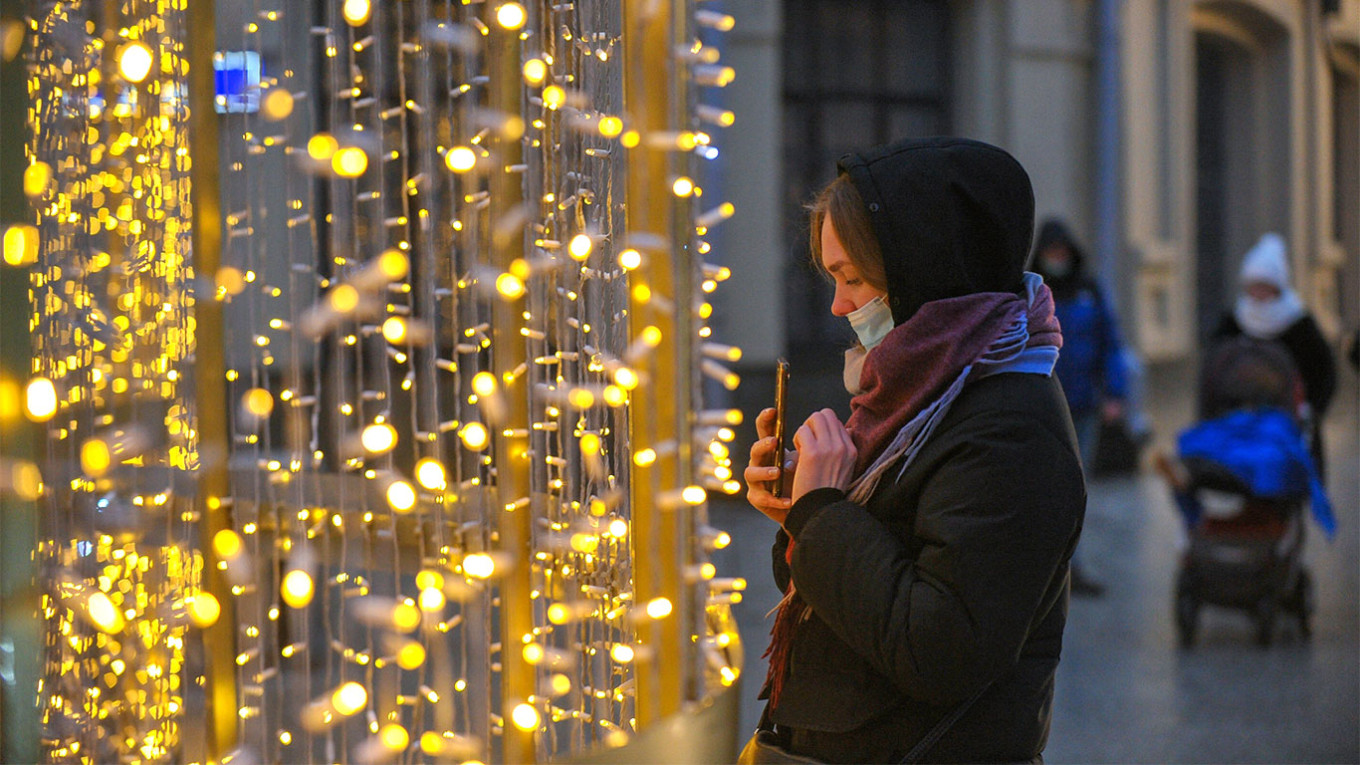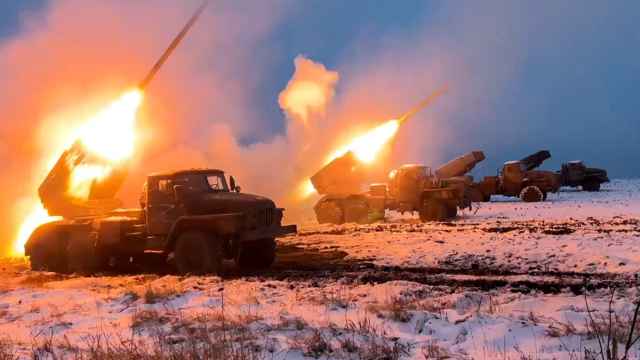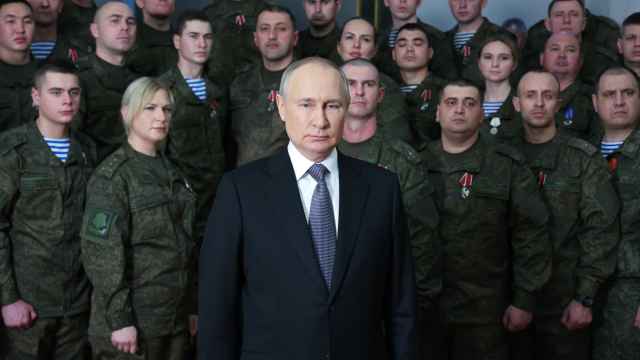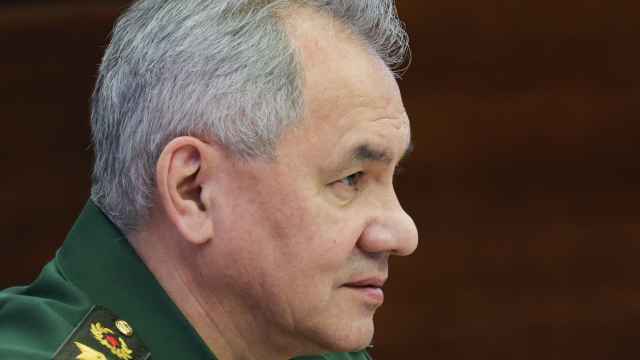Dozens of Russian cities have canceled or scaled back planned New Year’s Eve celebrations as the war strains local budgets and calls grow for money to be diverted to mobilized Russian soldiers lacking basic equipment and supplies.
“After Feb. 24, most people believed it [the war] would not affect them personally. But now it will knock on every door with each draft notice,” St. Petersburg opposition lawmaker Boris Vishnevsky said.
“It’s not a time for celebrations,” he told The Moscow Times.
President Vladimir Putin’s announcement of a “partial” mobilization last month brought the reality of the Ukraine war home to many Russians for the first time. And the scaling-down of celebrations for New Year — a major Russian holiday — will be a stark reminder of the ongoing fighting and the losses Russia has suffered at the hands of the Ukrainian military.
The southern region of Rostov on Tuesday became the latest region to announce it would be staging more modest New Year celebrations, with Governor Vasily Golubyov writing on Telegram that towns and cities in the area would make do with old decorations.
Rostov joins a list of dozens of Russian cities and regions, including the Kurgan region, Belgorod on the Ukrainian border, Russia’s second-largest city St. Petersburg and the Siberian city of Tobolsk, which have canceled events including concerts, firework displays and ice rinks.
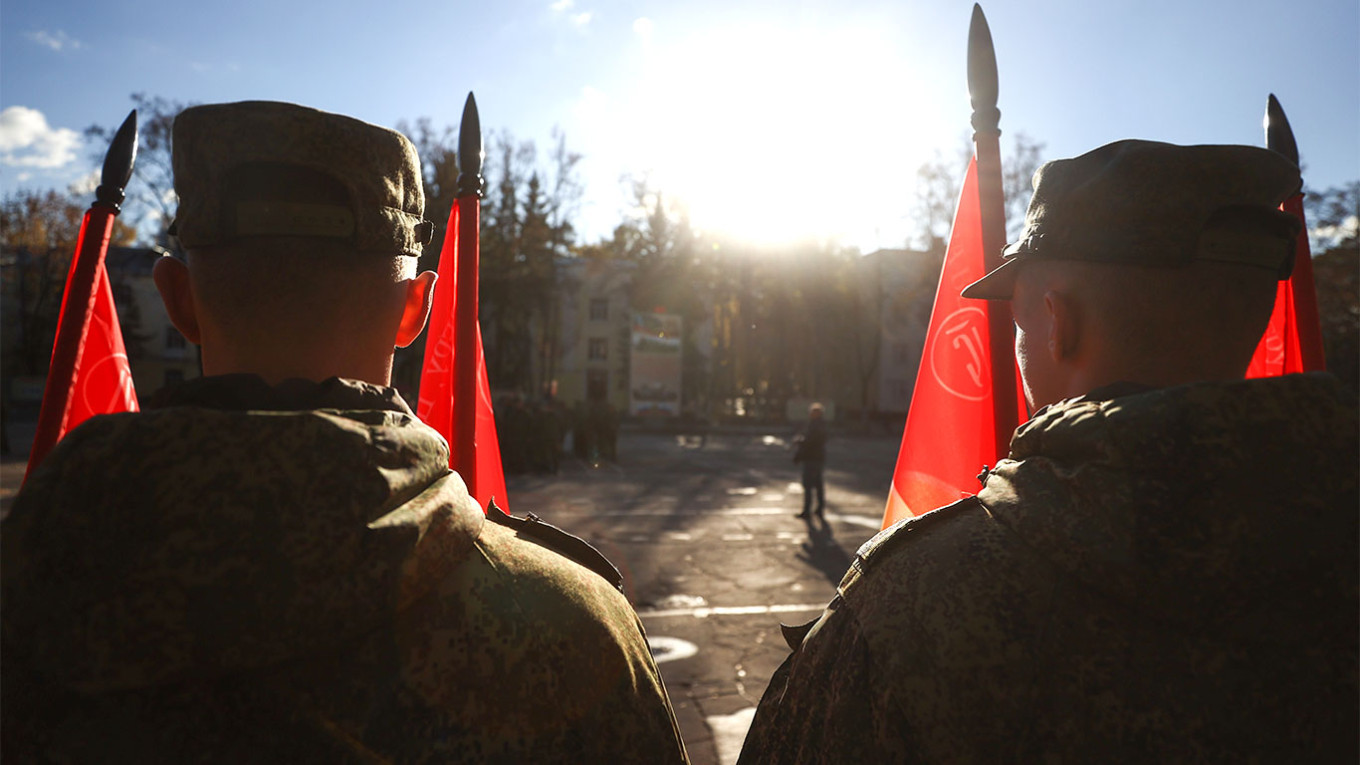
The capital, Moscow, has not yet announced any changes to its traditionally lavish New Year festivities.
Faced with a slew of reports about mobilized men lacking military equipment, warm clothes and medical supplies — as well as soldiers who have not received financial bonuses — there appears to be support for redirecting cities’ holiday budgets to the Armed Forces.
“The authorities allocate huge amounts of money to decorate the city during the New Year holidays,” Voronezh resident Natalya Seroukhova wrote last month in an online petition with over 700,000 signatures calling for the festivities in her hometown to be canceled.
Olga Lobanova, a resident of Nizhny Tagil, an industrial city near the Ural mountains, urged the local authorities last week to take a similar step.
“Money freed up should be transferred to buy additional equipment for the soldiers in our army, mobilized men and all types of volunteer fighters,” she wrote in a VKontakte post. “Let's support our guys!”
While the idea to cancel New Year celebrations appears to chime with changing attitudes toward the war among ordinary Russians, it is also likely to be an “unwritten order” from the Kremlin, according to political analyst Ivan Preobrazhensky.
Russian Culture Minister Olga Lyubimova said Wednesday that she was talking to regional governors about a “change of tone” when it comes to public events, Interfax reported.
Different regions have pledged the saved money will go to different causes.
In Nizhny Novgorod, officials promised the money would go to provide support to the families of those mobilized — including payments for kindergartens, school meals and extra lessons.
In the city of Kaluga south of Moscow, Mayor Dmitry Denisov said last week on Telegram that the funds saved by scaling back New Year celebrations would be spent on “our guys who should be better equipped than under the standard provisions.”
While there has been little evidence of unhappiness toward the prospect of a slimmed-down New Year, analysts warned that the loss of celebrations could end up causing dissatisfaction.
“Events such as New Year celebrations have a big impact on how the effectiveness of the authorities is measured at a household level,” Preobrazhensky told The Moscow Times.
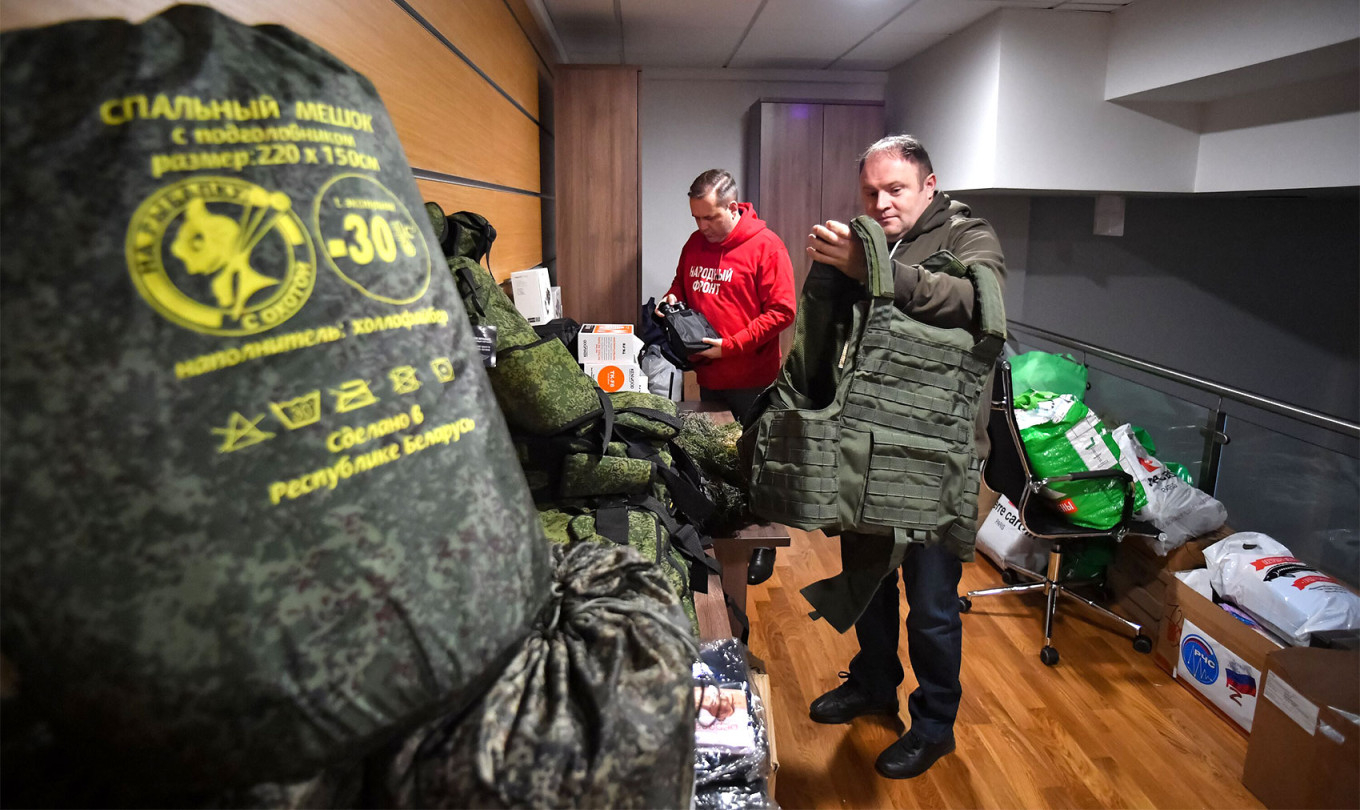
And there have been some signs of political nervousness over the decision, with an unidentified source in the Kremlin telling state-run news agencies TASS and RIA Novosti on Friday that the canceling of New Year plans was “premature” and “inaccurate.”
At the same time, some Russian regions may have no choice but to cut spending as the Kremlin seeks to devolve unpopular wartime expenditures.
In particular, local budgets appear to be strained by one-off payments to mobilized men — usually around 100,000 rubles ($1,550) — that have been pledged by dozens of regions.
The head of the Omsk region, Alexander Burkov, said last week that these one-off payments “would take some time,” adding that “the budget deficit is more than 13 billion rubles.”
Such an attempt to delegate the responsibility for the Kremlin’s unpopular mobilization to regional governments, according to observers, resembles its approach during the coronavirus pandemic, when it devolved decisions about lockdown to governors.
The regions are being “forced to run an evidently unpopular mobilization campaign while Moscow tries to delegate all possible costs,” said Preobrazhensky.
“Some of the regions are already bankrupt.”
However, a growing realization of the costs of the Ukraine war will not necessarily mean any changes in the Kremlin’s approach, according to St. Petersburg lawmaker Vishnevsky.
“All this only contributes to escalation, it does not bring us closer to peace,” he said.
A Message from The Moscow Times:
Dear readers,
We are facing unprecedented challenges. Russia's Prosecutor General's Office has designated The Moscow Times as an "undesirable" organization, criminalizing our work and putting our staff at risk of prosecution. This follows our earlier unjust labeling as a "foreign agent."
These actions are direct attempts to silence independent journalism in Russia. The authorities claim our work "discredits the decisions of the Russian leadership." We see things differently: we strive to provide accurate, unbiased reporting on Russia.
We, the journalists of The Moscow Times, refuse to be silenced. But to continue our work, we need your help.
Your support, no matter how small, makes a world of difference. If you can, please support us monthly starting from just $2. It's quick to set up, and every contribution makes a significant impact.
By supporting The Moscow Times, you're defending open, independent journalism in the face of repression. Thank you for standing with us.
Remind me later.



